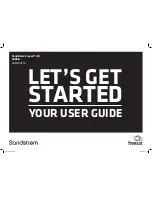
22
UAV-1001006-001
ECCN 7A994
8.2.2 Aircraft Address Programming
The ICAO address is a 24-bit number issued to the aircraft by the
registration authority of the aircraft. These addresses are usually written as
a 6-digit hexadecimal number, although you may also encounter one
written as an 8-digit octal number. The echoUAT understands the
hexadecimal format, so you must first convert an octal number to
hexadecimal before entering.
Tip:
Using the N-Number Look Up function on
registry information, locate and enter
the “Mode S Code (base 16/hex)”
value.
8.2.3 Call Sign
The CALL SIGN can be up to an 8 digit code that corresponds to the tail
number of the aircraft. (0-9, A-F).
You must include the “N”.
Tip:
This is typically your aircraft N-number, unless otherwise advised by
the FAA or ATC.
8.2.4 Flight-plan ID
Flight Plan ID, if provided, is used in accordance with product specific
transmission requirements. CSID Logic is applied to determine if the Flight
Plan ID is transmitted.
Flight Plan IDs are intended to contain Mode 3/A (12-bit) or expanded (18-
bit) codes, and shall only contain between 4 and 6 characters, consisting of
ASCII encoded values for digits 0-7.
Tip:
Generally, this field will be left blank, unless otherwise advised by the
controlling authority.
8.2.5 CSID Logic
Specifies Call Sign Identification (CSID) transmission behavior. A setting
of “Disabled” will result in a failure to generate an ADS-B Performance
report.
Summary of Contents for echoUAT
Page 1: ...1 UAV 1001006 001 ECCN 7A994 Installation and User Guide ...
Page 30: ...30 UAV 1001006 001 ECCN 7A994 1 Appendix A Interconnect Diagrams ...
Page 31: ...31 UAV 1001006 001 ECCN 7A994 ...
Page 32: ...32 UAV 1001006 001 ECCN 7A994 ...
Page 33: ...33 UAV 1001006 001 ECCN 7A994 ...
Page 38: ...38 UAV 1001006 001 ECCN 7A994 GRT Example Wiring ...
Page 39: ...39 UAV 1001006 001 ECCN 7A994 ...
















































